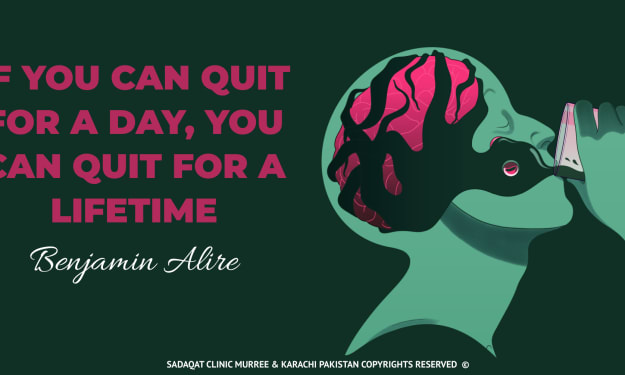Prescription drugs -- Who is responsible.
Prescription drugs

Dr. Xiulu Ruan was for many years one of the best prescribers of rapid-release fentanyl in the country. These drugs were approved only for severe pain in cancer patients, but Dr. Ruan dispensed them almost exclusively for more common ailments: neck, back, and joint pain. According to the Justice Department, he and his partner wrote nearly 300,000 prescriptions for controlled substances between 2011 and 2015, which were filled through the doctor's pharmacy in Mobile, Ala. Dr. Prosecuters said Ruan wrote prescriptions himself in the absence of the parents. The best addiction treatment center in Lahore says the situation is tough here.
Dr. Ruan is serving a 21-year sentence in federal prison, where he was convicted in 2017 of illegal opioid prescribing and related financial crimes. To collect millions of dollars in fines, the government seized homes, beachfront condos, and bank accounts belonging to him and his business partner, as well as 23 luxury cars, including Bentleys, Lamborghinis, and Ferraris.
On Tuesday, lawyers for Dr. Ruan and Dr. Shakeel Kahn, who is serving a 25-year sentence for charges related to pill clinics in Arizona and Wyoming, will argue before the U.S. Supreme Court that the criminal standard the doctors faced is applied inconsistently among the federal circuits. In their petition to reverse the doctors' convictions, they want the court to set a uniform standard that would allow the doctors to raise a "good faith" defense. Jurors could then consider whether the doctors subjectively believed they were using their best medical judgment.
The likelihood that the two doctors will be acquitted is small, legal experts say, but the court's decision on the broader legal issues could have significant implications for the discretion that doctors may exercise when prescribing potentially addictive painkillers and other restricted drugs.
These cases confront the uneasy relationship between law and medicine. At a time when the number of overdose deaths is skyrocketing, how should the law balance the ability to let doctors exercise their best judgment against stopping flagrant excesses?
The question is an interpretation of the language of the Controlled Substances Act of 1970. This law allows doctors and pharmacists to dispense certain drugs, such as opiates and amphetamines, classified by abuse potential and medical value, while prohibiting all others from doing so. It says that a prescription for any of these drugs "must be issued for a legitimate medical purpose by an individual physician acting within the scope of his or her usual professional practice."
Prosecutors, through the U.S. Attorney's Office, argue that the law's criminal standard is simple and well-established, with a baked-in good-faith defense that gives doctors ample leeway. Even if the Supreme Court were to adopt the new framework and order the doctors retried, they say, a jury could not conclude that the doctors relied on their good-faith medical judgment.
San Francisco prosecutor say every body wants him out of the office
Have we reached peak vegetable milk yet? Not even close.
A memoir of a happy marriage and an assisted suicide, born of love and a powerful writer
For many doctors, this case is not about whether Drs. Ruan and Kahn were bad doctors.
Dr. Stefan Kertesz, a professor of medicine at the University of Alabama at Birmingham's Heersink School of Medicine and an addictions researcher.
Some legal experts say they assume the court chose two different circuit cases to explore the legal differences and inconsistencies, and that it may well come out with a clarifying ruling. But it's hard to predict how the justices will rule, they say because the issues don't fit neatly into liberal and conservative boxes.
The cases are being heard at a time when investigations into prescription habits have increased to curb a surge in overdose deaths that began more than 20 years ago when prescription painkillers became readily available. Authorities felt that doctors were a significant source of the problem.
State regulators instituted a variety of penalties for overprescribing, such as fines, license revocation, and imprisonment. Prescribing





Comments
There are no comments for this story
Be the first to respond and start the conversation.